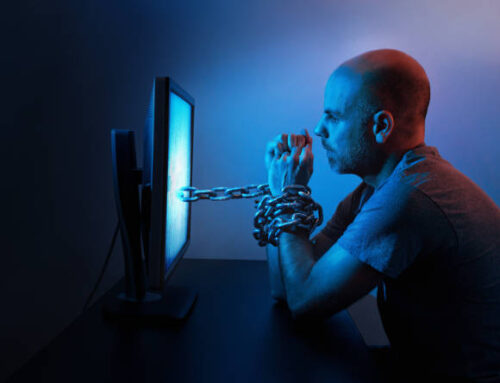As a parent, an important part of your job is to help ensure that your children are safe from the wide variety of inappropriate and harmful content that’s available online. However, it is just as important to make sure that your child isn’t the one POSTING inappropriate content. The fact is that anybody can post and share videos, pictures, or ideas to social media, and with many young people not fully realizing the consequences of posting sensitive or inappropriate content, it is far too easy for them to post something without thinking.
From racist or otherwise offensive memes to sexually suggestive photographs, there are many things that kids can post online that can come back to hurt them. Even if parents try to teach their children about what they should or should not post, there’s still a chance that they’ll post something that they’ll regret later on. As such, parents need to be prepared to respond quickly and with the right mindset.
Why Do Kids & Teenagers Post Inappropriate Content?
Something that’s important, both for preventing children from posting inappropriate content online and tackling cases where it happens, is understanding why they would post it in the first place. After all, if you don’t know why someone would post unsuitable online content, you won’t be able to explain why it’s not allowed in the first place. Also, understanding the reasons behind the post(s) can make it easier to decide how to address the problem.
There are many different reasons why kids post inappropriate content online, but a lot of it comes down to either peer pressure or poor judgment, often times both at once. Just as it was before the internet, kids like to be relevant and popular, and sometimes this means posting something shocking and that grabs people’s attention. Also, children’s brains aren’t quite fully developed yet, so they don’t realize the seriousness of their actions. To them, something offensive or frightening might just seem like a joke.
What Should You Do If Your Child Posts Something Inappropriate Online?
If your child informs you that they have posted something that shouldn’t have online (or if you’ve seen them post something inappropriate), your first step is do damage control. Deleting the post in question is the first step, which can sometimes be enough depending on how far the post has spread. If there hasn’t been much response to the post, then it might be possible to simply go on like it never happened. In some cases, you might even want to delete their social media account altogether, though this might not always be an option. If there is a discussion online regarding what your child has posted, it can be tempting to try and step in order to control the conversation, but this can easily backfire and make matters worse if you aren’t careful.
After you have handled the situation, it is important to talk with your child regarding how they feel about themselves after they have posted something inappropriate. Kids and teenagers often feel shame or guilt following situations like this, worrying that what they did might make them a “bad person.” Depending on the severity of the situation, kids can suffer from depression and anxiety, with some even turning to self-harm. While the exact message that you give to your child will vary based on the specifics of what they posted and why, it is important to be empathetic and normalize the idea that we all make mistakes. From there, you can teach them to be more self-conscious of what they post going forward and teach them to be better digital citizens.
Encouraging Mindfulness & Safety
Perhaps the most important thing to keep in mind when dealing with a situation like this is to be positive and supportive rather than simply punishing your child. The most common parental response when a child posts something inappropriate online is to limit or remove their internet access, along with other restrictions to prevent future incidents. In practice though, this tends to have the opposite effect: if your child makes a mistake and you just punish them for it, they are far less likely to discuss future problems with you. Obviously, there might be situations when punishment is needed, but you should use this moment as a teaching opportunity to help them stay safe online and be more mindful of what kind of content they post in the future.





